Indigenous and gender justice activists were crucial in mobilizing to protect democracy in the 2023 Guatemalan elections. The Institute met with these activists in June 2024 as part of a partner-led delegation to bring attention to their vital work.
BY INSTITUTE STAFF
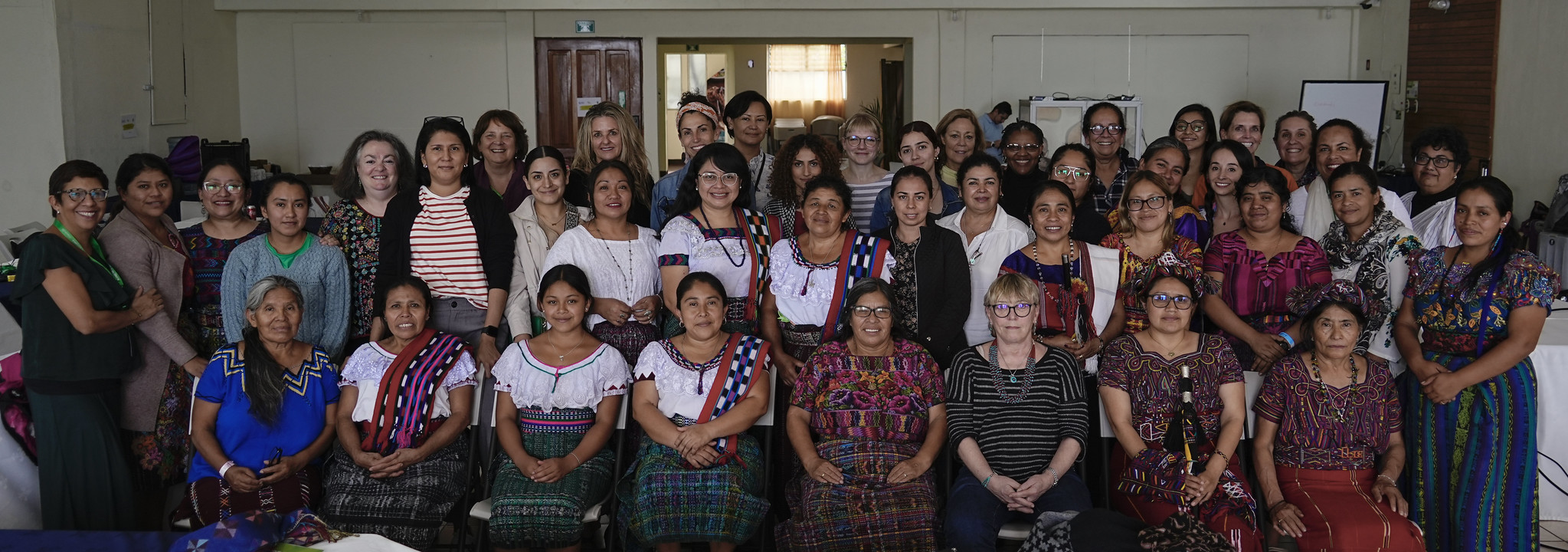
Women land and water defenders and the delegation group.
Photo Credit: Nobel Women’s Initiative
For 106 days following the 2023 Guatemalan elections, Indigenous Mayan activists led a historic mobilization in defense of their country’s democracy. Their movement emerged following the August 2023 elections, where the ruling elite refused to transfer power over to the winner, Bernardo Arevalo of the progressive social democratic Movimiento Semilla party.
Indigenous women activists and grassroots gender justice groups were at the heart of the organizing efforts that ultimately led to the successful transfer of power and defense of democracy. In January 2024, President Arevalo, who ran on an anti-corruption and anti-discrimination platform, took office. In the early months of his presidency, he thanked and acknowledged the important movement work and organizing that helped shape the peaceful transition of power.
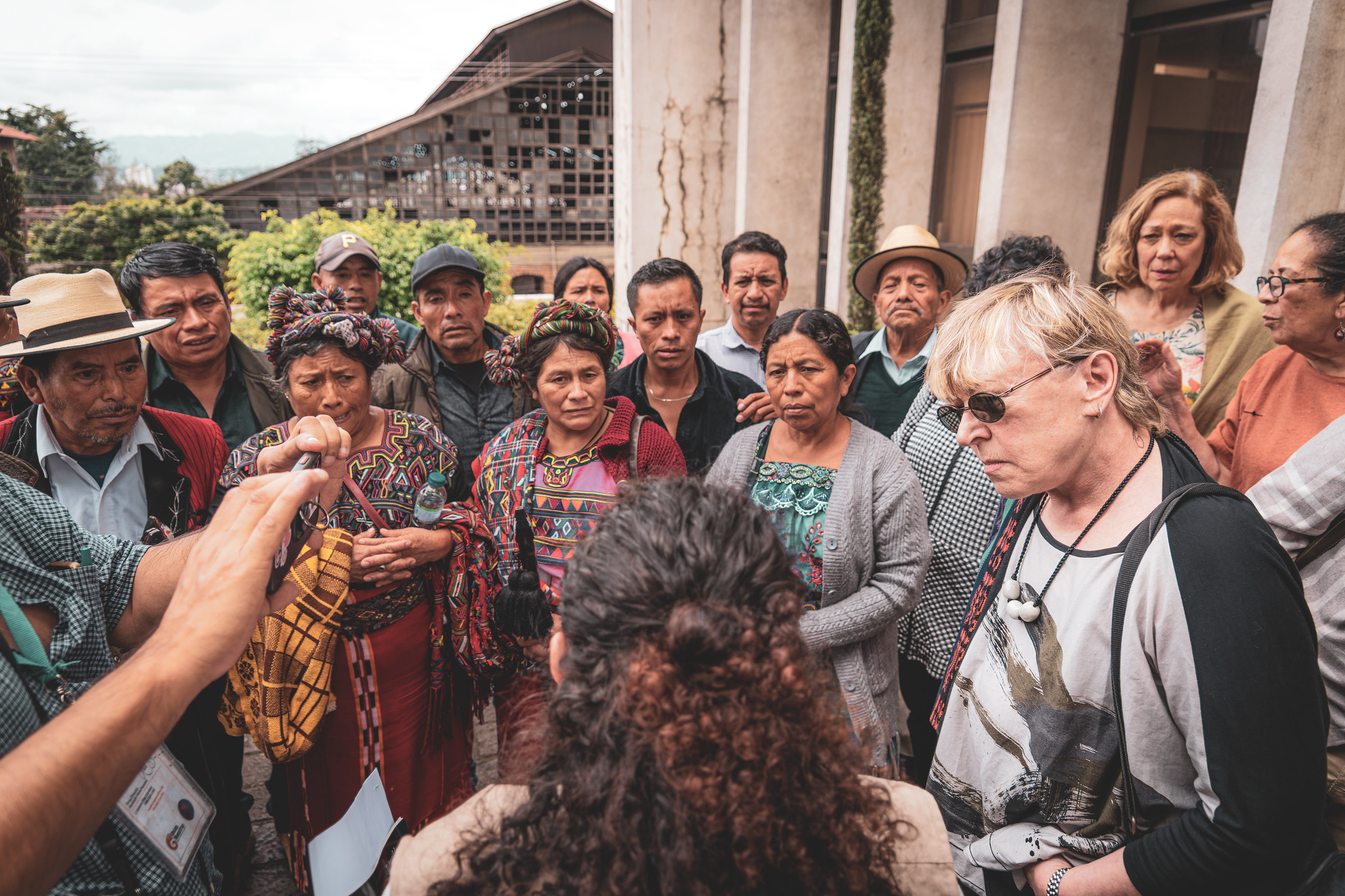
Nobel Peace Laureate Jody Williams and delegation speaking to families of victims seeking justice at the historic genocide trial.
Photo Credit: Nobel Women’s Initiative
Dr. Mikaela Luttrell-Rowland, Senior Director of the Institute on Gender, Law, and Transformative Peace, joined a delegation to Guatemala in June 2024 to shine a spotlight on this transition and to amplify lessons learned. Organized by Nobel Women’s Initiative (NWI), JASS Poder Colectivo (JASS), and Fundación Rigoberta Menchú Tum, the trip brought together Nobel Laureates, regional human rights organizations and Indigenous women’s activists and defenders to center and learn from activist wisdom. The delegation met with women working on the front lines on a range of issues, from protecting land, water, and democracy to seeking justice for victims of gender-based violence and bearing witness to Guatemala’s historic genocide trial.
JASS Executive Director Shereen Essof opened the delegation by noting the historic nature of the Indegenous women’s work and this moment. She said, “From a movement perspective, we’ve seen the people of Guatemala — via social mobilization and via strong community organizing — and their movements mount a really historic, Indigenous defense of democracy.”
Meeting with Activists
Over the course of the trip, the delegation met with community organizers to discuss the conditions facing Indigenous women, defenders, and activists in the country, as well as to learn about their work during the recent democratic transition in the country, and to hear their reflections on violence, resistance, and resilience.
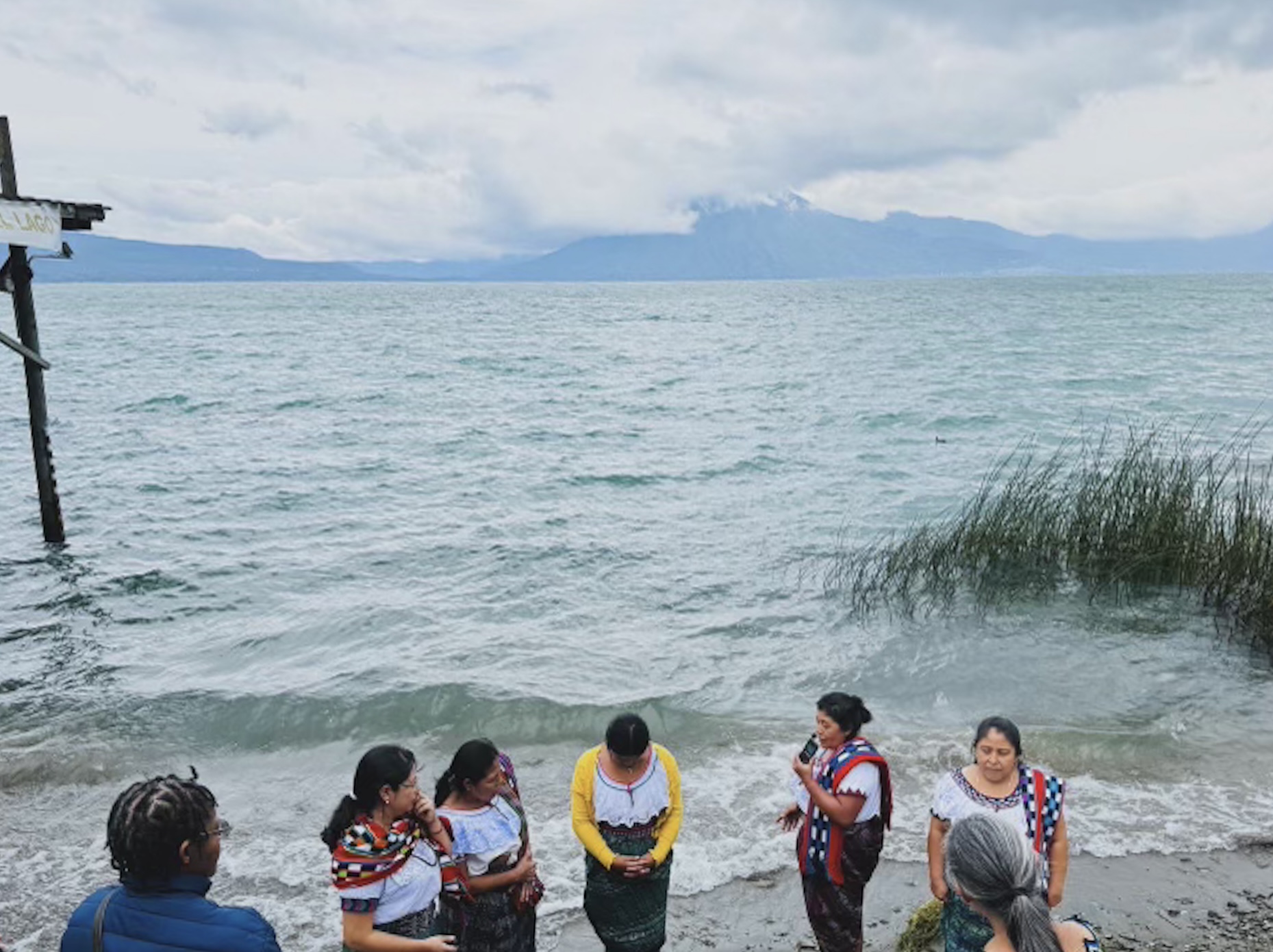
The Women Guardians of Lake Atitlan
Photo Credit: Dr. Mikaela Luttrell-Rowland
These meetings began with a regional dialogue between the delegation and representatives from Guatemala, Honduras, and Mexico, focusing on the current state of persecution, criminalization, and human rights violations against human rights activists and lawyers, as well as defenders of land and territory.
The Women Guardians of Lake Atitlan are Mayan women environmental activists from the villages around Lake Atitlan (“grandmother lake”) in the Tzunun Ya’ community. The delegation met with the Guardians in Panajachel, and listened to their experiences protecting their water and natural resources. Indigenous women in Panajachel are also defending land and territory, through their work to advance collective spaces, food sovereignty, and the conservation of native seeds and medicinal plants. It was near Lake Atitlan that Indigenous people and Guatemalans from across the country gathered to organize the 106 protest and defense of democracy.
To learn more about this political moment and the work of Guatemalan activists, the delegation also met with women from municipalities including Santa Lucia Utatlan, Ixil, San Marcos la Laguna, and Chuarrancho, as well as the young leaders of the Tio Juan and Platform for Indigenous Women in Centro Pavarotti.
Amplifying Activist Voices
The delegation convened a press conference to share reflections on the Indigenous women’s work and its broader significance in Guatemala and beyond. Nobel Peace Laureate Rigoberta Menchú Tum (Guatemala) lauded the strength and diversity of coalition work.
“Today Indigenous women are conquering with great force — [It] is the first time that we can say that we are a force, that we have alliances, and our alliances are not only between us,” Nobel Peace Laureate Menchú Tum said.Nobel Peace Laureate Jody Williams (US), Aliya Al-Nehmi, daughter of Nobel Peace Laureate Tawakkol Karman (Yemen), and Shereen Essof (Zimbabwe), JASS Executive Director, also made remarks.
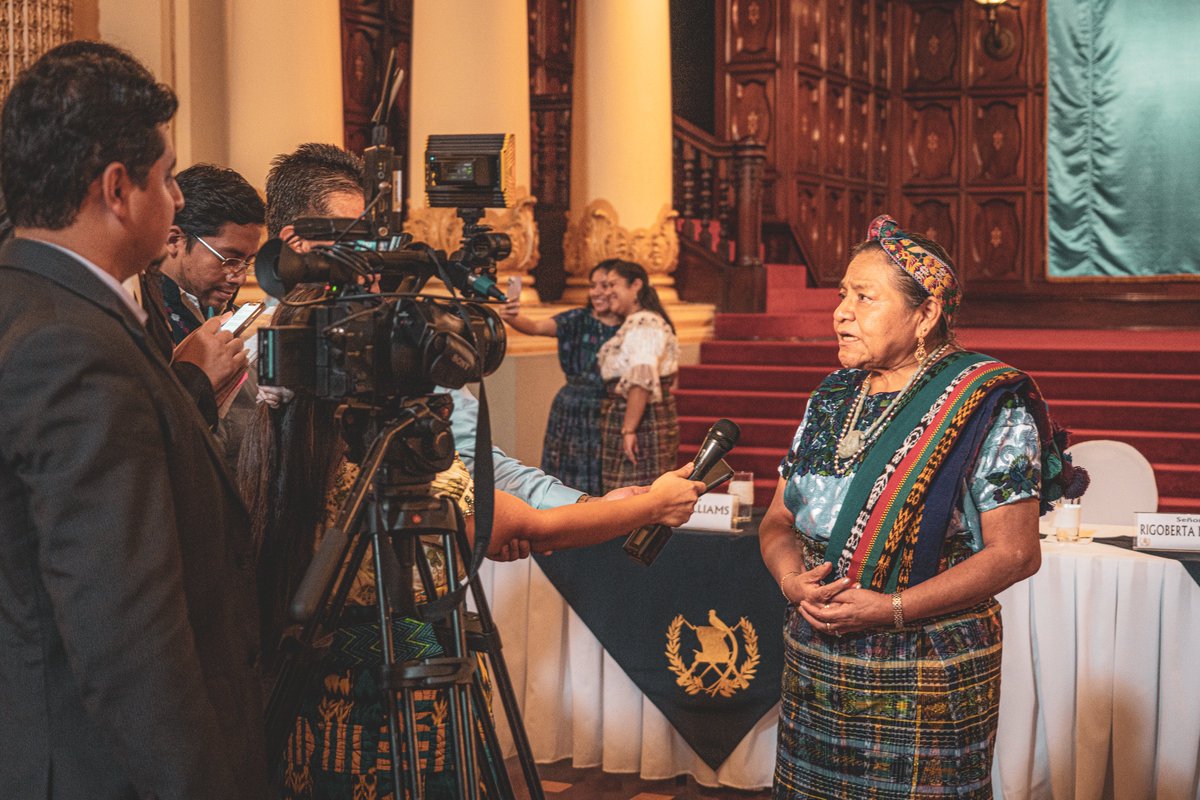
Nobel Peace Laureate Rigoberta Menchú Tum.
Photo credit: Nobel Women’s Initiative
The trip culminated with a meeting with President Bernardo Arevalo, Vice President Karin Herrera and other government deputies and ministers at the Presidential Palace in Guatemala City. The delegation reflected on the challenges, insights and solutions shared by the Indigenous women and underscored their purpose of providing a direct channel for grassroots solutions to inform policy. The Nobel Women’s Initiative reflected, “We met with President Bernardo Arevalo and Vice President Karin Herrera to discuss the challenges, insights, asks, and solutions of the Indigenous women, land and territory defenders, and weavers we met.”
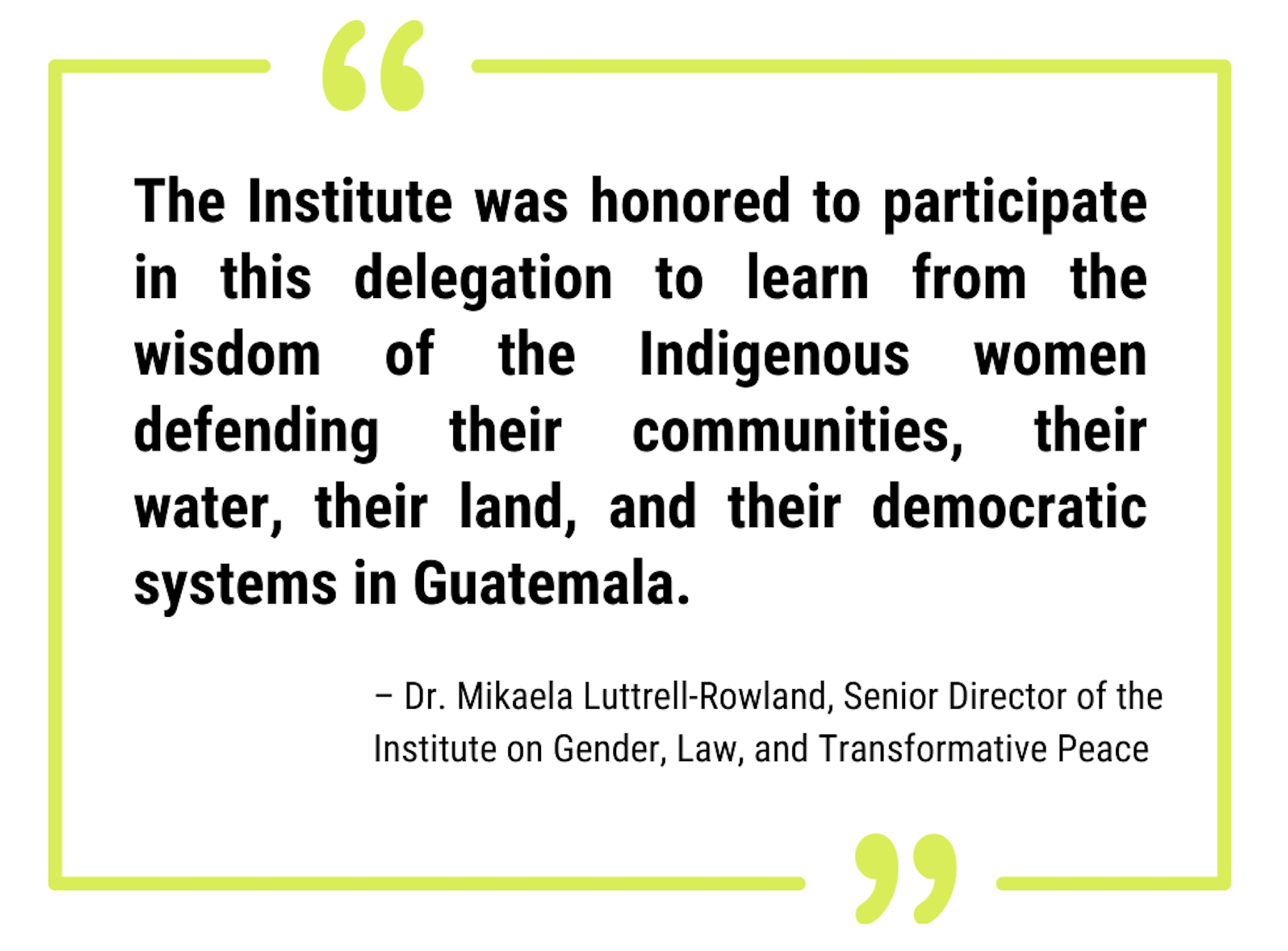 The trip presented an opportunity for widespread coalition building both within and across the region. “The Institute was honored to participate in this delegation to learn from the wisdom of the Indigenous women defending their communities, their water, their land, and their democratic systems in Guatemala,” said Senior Director Luttrell-Rowland. “It was deeply moving and inspiring to be part of such a powerful convening and to hear about the cross-mobilization work happening. What the organizing by this growing coalition of Indigenous and gender justice activists has been able to achieve — building on years of previous work and despite sustained structural challenges — is a powerful success story and should be amplified and turned to as such.”
The trip presented an opportunity for widespread coalition building both within and across the region. “The Institute was honored to participate in this delegation to learn from the wisdom of the Indigenous women defending their communities, their water, their land, and their democratic systems in Guatemala,” said Senior Director Luttrell-Rowland. “It was deeply moving and inspiring to be part of such a powerful convening and to hear about the cross-mobilization work happening. What the organizing by this growing coalition of Indigenous and gender justice activists has been able to achieve — building on years of previous work and despite sustained structural challenges — is a powerful success story and should be amplified and turned to as such.”
The delegation agreed that this visit is just the beginning of amplifying the voice and wisdom of feminist, grassroots and Indigenous women. As President Arevalo begins his presidency, he has and continues to listen to these women in shaping his first months in office. Guatemalan Indigenous women activists are showing the country and the world the power of ancestral organizing and the importance of community mobilization in leading up to, actualizing, and learning from elections.
